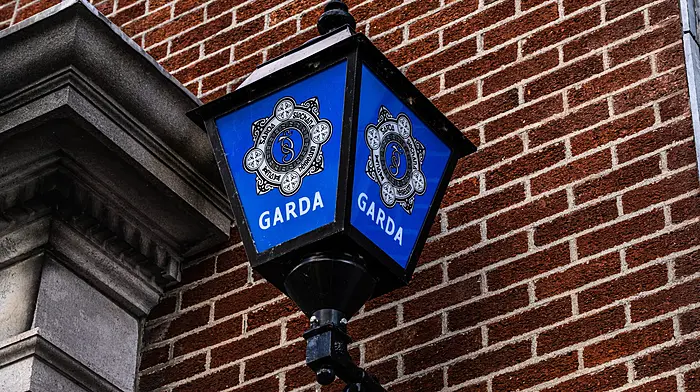Now up to 100 extremists in Ireland and more than 30 Irish citizens have gone to fight with terror group ISIS
AGAINST the background of horrific ISIS-inspired atrocities in Paris and growing concern that fascistic, religiously-inspired lunatics already might be in this country, the comments uttered over the past year by Dr Umar Al-Qadri of the Irish Muslim Peace and Integration Council are of particular importance.
Last July, he and his group organised a protest in Dublin against the actions of ISIS. The message was simple: Muslims in Ireland must take a stand against radical teachings.
‘We cannot remain silent,’ said Dr Umar Al-Qadri, Iman of the Al Mustafa Mosque in Blanchardstown. ‘If you remain silent you will let them (the fanatics) come into the mosque and they will speak to the youth and spread the cancer of extremism’.
He works with 25 other faith leaders from across the country (in cities such as Belfast and Cork) trying to prevent Islamic extremism from taking root while arguing that the British did nothing, and now it is too late.
Over 300 people turned up to the rally in spite of some Muslim institutions denying that radicalisation was taking place in Ireland. Ironically, a member of his peace and integration council was assaulted at a mosque while handing out leaflets.
In August, Al-Qadri claimed that Islamic extremists were congregating regularly at two of the 26 mosques in Ireland.
He said there were now up to 100 extremists in Ireland and that more than 30 Irish citizens had gone to fight with the terror group ISIS.
He pointed out that, in one mosque, the religious leaders had a practice of never denouncing atrocities perpetrated by ISIS: ‘The silence and denial surrounding the problem by leaders is making the problem much worse,’ he told the American magazine, Newsweek.
Active in Ireland
Interesting too that last year another leading Muslim cleric, Dr Ali al-Saleh, Iman at the Shia mosque in Milltown, told Newstalk that Ireland was not doing enough to combat the ISIS threat.
He warned that Isis members are active at the level of small circles, giving lectures and talking to the youth; and he advised that it was the duty of Muslims to notify the Gardaí of such activities.
According to Dr al-Saleh, after alerting the Gardaí to a controversial Saudi preacher on his way to spend ‘a few months’ in Dublin, the agitator was prevented him from entering the country. He urged fellow Muslims to do the same if they had knowledge of hate-mongers visiting Ireland.
Yet there is no doubt that high profile radicals can slip through the net. Some months ago one such fellow, a member of the banned British Islamist organisation al-Muhajiroun, declared on a Cork radio station that Ireland was a legitimate target for attack because of its decision to allow American planes refuel at Shannon Airport on their way to bombing Muslim countries.
Then, earlier in the year, the Indo-Sindo outfit sensationally announced that recruits from various Islamist terror groups were observed in ‘training camps’ on mountains in the east of the country. And, if that wasn’t bad enough, the newspaper warned ominously that Ireland had become a hub for jihadists making their way to war zones in Syria and Iraq.
The newspaper claimed that the hard-core of Islamist terrorists – most of whom had been granted political asylum in this country – were ‘co-ordinating logistics for al-Qaeda and Isis’. As well, a chain of businesses and ‘safe houses’ was being used to launder money. Not a shred of evidence was produced to substantiate the newspaper’s hair-raising disclosures.
Islamophobia
In the Dáil, following another alarmist Indo-Sindo report that an individual living in South Dublin for 15 years was believed to play a role in the finances of ISIS, Justice Minister Frances Fitzgerald told a worried FF deputy, Niall Collins, that legislation currently in place would allow CAB to investigate allegations of that nature.
All of which raises the question of the extent to which Islamophobia is being whipped up (deliberately or otherwise) by inflammatory anti-Muslim rhetoric. Certainly, leaders like Dr Umar al-Qadri do the upmost to promote the peaceful credentials of their religion and, in the advancement of pluralism, and tolerance he sees a means of integrating young Muslims in Irish society. Like the rest of us, he is repelled by Islamic terrorism and condemns it unequivocally as evil.
But are other Irish Islamic leaders as energetic as Dr Umar al-Qadri in their desire to participate fully in Irish society? For instance, gaining ground in recent times is the belief that a fundamentalist Salafi interpretation of Islam is the most popular form of the religion embraced by Muslims in Ireland.
This version of Islam tends to disparage the idea of integration and of a liberal civil society.
Indeed, the preference is for phrases like ‘mutually respecting differences’ and the notion that different cultures should be able to live in the one society without sharing common ideals.
The way forward
As far as we’re concerned, if Ireland is to be a place of religious diversity the way forward is for religions to be part of a harmonious and larger unit, open and responsive to people of all races and cultures. Self-imposed segregation makes it easier for the extremists to create a climate of fear that can manifest itself in intolerance and racism.
Dr Umar Al-Qadri makes clear that fanaticism, racism, prejudice and bigotry are not unique to the country to which Muslims have migrated; such failings are also very much part and parcel of Islam, as the savagery of ISIS, Boko Harem, Taliban and al-Qaeda powerfully demonstrate.
Let’s bear in mind too that Islam is the fastest growing religion in Ireland (current figures stand at 49,204). In 1991 Muslims made up only 0.1% of the Irish population but the Central Statistics Office reports that by 2030 the number will have grown to 125,000 – the largest Muslim percentage increase in population in Europe!
Let’s also bear in mind that religious prejudice against Muslims in Ireland is not the norm, which does not mean that discrimination does not already exist, but simply that it is different to that experienced by Muslims in countries such as France and Holland.
Debate is good
And, as Muslim immigration into this country increases, the conflict of religious ideas is inevitable. That’s good.
Intellectual conflict relating to religious issues can be constructive when the cut and thrust of rational argument contributes to a communal interlocking between people of different persuasions.
(If people have no opinions –religious, social, political or otherwise – it usually means they don’t care about anything).
But what Ireland doesn’t need is religious intolerance and fanaticism. We’ve had too much of that, the results of which can be seen in the North where discord frequently triggers a clash between religious intransigence and the need for social and political change!







